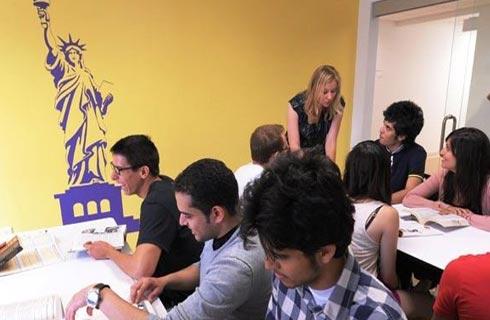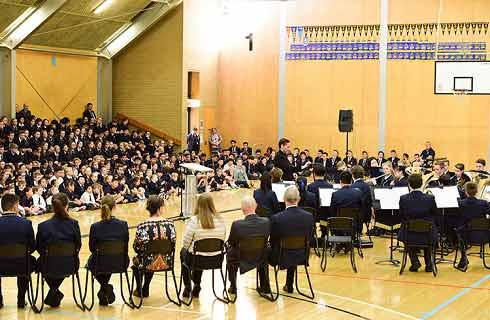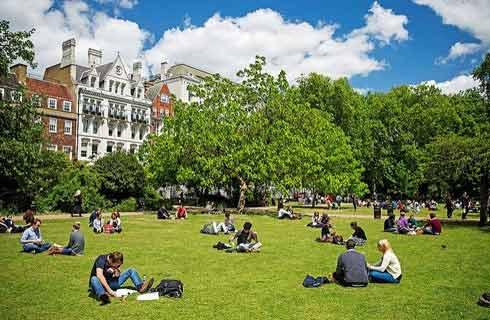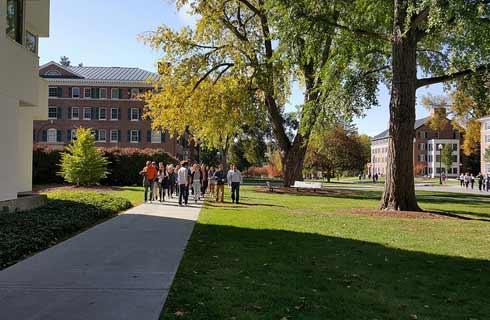机电工程(荣誉)学士学位
BEng (Hons) Mechanical and Electrical Engineering

学历文凭
Bachelor Degree with Honours

专业院系
Mechanical Engineering

开学时间

课程时长

课程学费

国际学生入学条件
IDP—雅思考试联合主办方

雅思考试总分
- 雅思总分:
- 托福网考总分:
- 托福笔试总分:
- 其他语言考试:
CRICOS代码: H361
申请截止日期: 请与IDP联系 以获取详细信息。
课程简介
There is strong industrial demand for skilled engineers able to span the mechanical and electrical engineering disciplines. This degree gives you the fundamental knowledge and tools to satisfy this demand in a unique way.During this course, you will study units from the mechanical and electrical disciplines along the following themes: design and integration of electro-mechanical systems; energy conversion and actuation systems; embedded systems and control; power electronics and electric drives; and energy management.Years one and two offer a grounding in mathematics, thermal management, dynamics and control, computing, electrical energy technologies, and analogue and digital electronics. Laboratory work and case studies will draw together these interdisciplinary foundations.In the third year, as well as the classroom-based subjects, you will engage in a significant individual research project that requires you to bring the various elements of subjects that you have learnt in the course together. You can indicate a preference when selecting your project that allows you to focus on anything from actuation and sensor systems for robotics and intelligent adaptable power systems to efficient, clean propulsion technologies.Mechanical and electrical engineering graduates will be able to innovate technologies in a range of areas. These might include:the power flow of renewable energy microgrids, from the wind to the electric generator and the power network to the user in the home;robotics used in healthcare and manufacturing, by exploring the integration of mechanical and electrical elements to deliver new capabilities;the complete power train of future electric vehicles, from the energy storage system, through to the electric motors, to the mechanical drivetrain and traction system;battery-free technology that harvests background energy, allowing sensors to operate in previously inaccessible and far-reaching locations.
相关申请
 预科
预科 奖学金
奖学金 实习机会
实习机会 在校学习
在校学习 跨境学习
跨境学习 校园授课-线上开始
校园授课-线上开始 在线/远程学习
在线/远程学习
开学时间&学费
学费信息仅供参考,请与IDP联系以获取详细信息
| 开学时间 | 时长 | 学费 | 地点 |
|---|
学校排名

世界排名78
数据源:
泰晤士高等教育世界大学排名
关于布里斯托大学

布里斯托尔大学在''2025年QS世界大学排名''中名列全球第54位、英国第9位,因世界一流的教育和具有深远影响力的研究而享誉国际。该校共有3.2万名学生,其中近三分之一为国际学生,那里也因此而成为一个具有多元学术思想的社群。布里斯托尔大学在英国整体就业结果排名(2025年QS)中名列第12位,其毕业生受到本地及国际雇主的青睐。学生可享受专业的职业指导和就业能力提升计划,这些支持和服务旨在增强学生的自信、技能和实践经验,助力其实现自己的职业目标。 作为备受推崇的罗素大学集团(Russell Group)和世界大学联盟(Worldwide Universities Network)的成员,布里斯托尔大学高度重视科研的质量和社会影响力。该校共有30多个研究中心,研究人员和学生们汇聚于此,针对气候变化和人权等全球性紧迫问题,通力协作提供创新解决方案。在''泰晤士高等教育''(Times Higher Education)对''2021年卓越研究评估框架''(Research Excellence Framework)的分析中,布里斯托尔大学的科研实力位列全英第五。在''2025年QS世界大学学科排名''中,该校共有29个学科跻身全球30强。该校还拥有丰富的课外活动,学生会积极活跃,运营管理着350多个俱乐部和社团。走出校园,在常年荣膺"英国最宜居城市"称号的布里斯托尔,学生可尽情探索这座活力四射、历史悠久的多元化都市。
本校相关课程

理学硕士(荣誉)化学
学历文凭
Bachelor Degree
开学日期
课程费用总额


考古学和人类学文学士学位
学历文凭
Bachelor Degree with Honours
开学日期
课程费用总额


理学学士(荣誉)学位
学历文凭
Bachelor Degree with Honours
开学日期
课程费用总额


理学学士(荣誉)数学和哲学
学历文凭
Bachelor Degree with Honours
开学日期
课程费用总额


工学(荣誉)数学与计算机科学
学历文凭
Bachelor Degree
开学日期
课程费用总额


具有工业经验的化学(荣誉)理学硕士
学历文凭
Bachelor Degree
开学日期
课程费用总额

其他相关课程

专业工程学硕士(地质力学)
 悉尼大学
悉尼大学泰晤士高等教育世界大学排名:54
学历文凭
Masters Degree (Coursework)
开学日期
课程费用总额


工学学士学位(机械)(荣誉学位)/工学硕士学位(生物医学)
 弗林德斯大学
弗林德斯大学泰晤士高等教育世界大学排名:307
学历文凭
Dual Degree
开学日期
课程费用总额


工程荣誉学士学位(机械工程)
 悉尼大学
悉尼大学泰晤士高等教育世界大学排名:54
学历文凭
Bachelor Degree with Honours
开学日期
课程费用总额


机械与制造工程研究硕士
 南澳大学
南澳大学学历文凭
Masters Degree (Research)
开学日期
课程费用总额


工程学硕士(机械)
 阿德莱德大学
阿德莱德大学学历文凭
Masters Degree (Coursework)
开学日期
课程费用总额


工学学士-机械(荣誉学位)
 弗林德斯大学
弗林德斯大学泰晤士高等教育世界大学排名:307
学历文凭
Bachelor Degree with Honours
开学日期
课程费用总额










 英国
英国